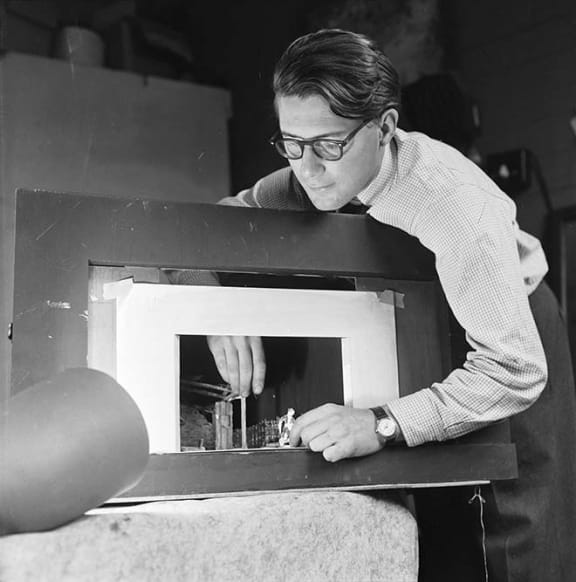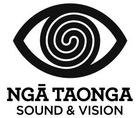Designer Raymond Boyce made a huge contribution to ballet, opera, puppetry and straight drama after he first came to New Zealand in 1953.
In 2015, Peter Mechen talked to Raymond and others who worked with him over six decades in the theatre.

Raymond Boyce, set designer for the New Zealand Players, with a miniature model of a stage and set. Evening post (Newspaper. 1865-2002) :Photographic negatives and prints of the Evening Post newspaper. Photo: Ref: EP/1956/2759c-F. Alexander Turnbull Library, Wellington, New Zealand.
Raymond Boyce, a Londoner by birth and training, was invited as a young theatre designer to New Zealand by Richard Campion in the early 1950s, to join the New Zealand Players as the company's resident designer.
Boyce went on to become the first designer for other artistic groups who sprang up at round the same time; the New Zealand Ballet, and the New Zealand Opera and, in later years, Downstage Theatre in Wellington.
He originally intended to stay in the country for only eighteen months, but got hooked by New Zealand and the opportunities the country presented, and remained here for the rest of his life. He received the country's highest artistic honours, in 2007 receiving the Arts Foundation Icon Award. He had in 1977 been awarded an MBE for his services to theatre, as well as an honorary Doctorate of Literature from Victoria University of Wellington in 1990, and the Governor General's Art Award and Fellowship of the New Zealand Academy of Fine Arts in 1993.
Raymond Boyce died in August 2019 at the age of 91.
Peter Mechen spoke with Raymond at his home in Te Aro, Wellington in 2015 and to others who worked with him, including Peter Coates, Russell Kerr, Sunny Amey and Sir Jon Trimmer.


